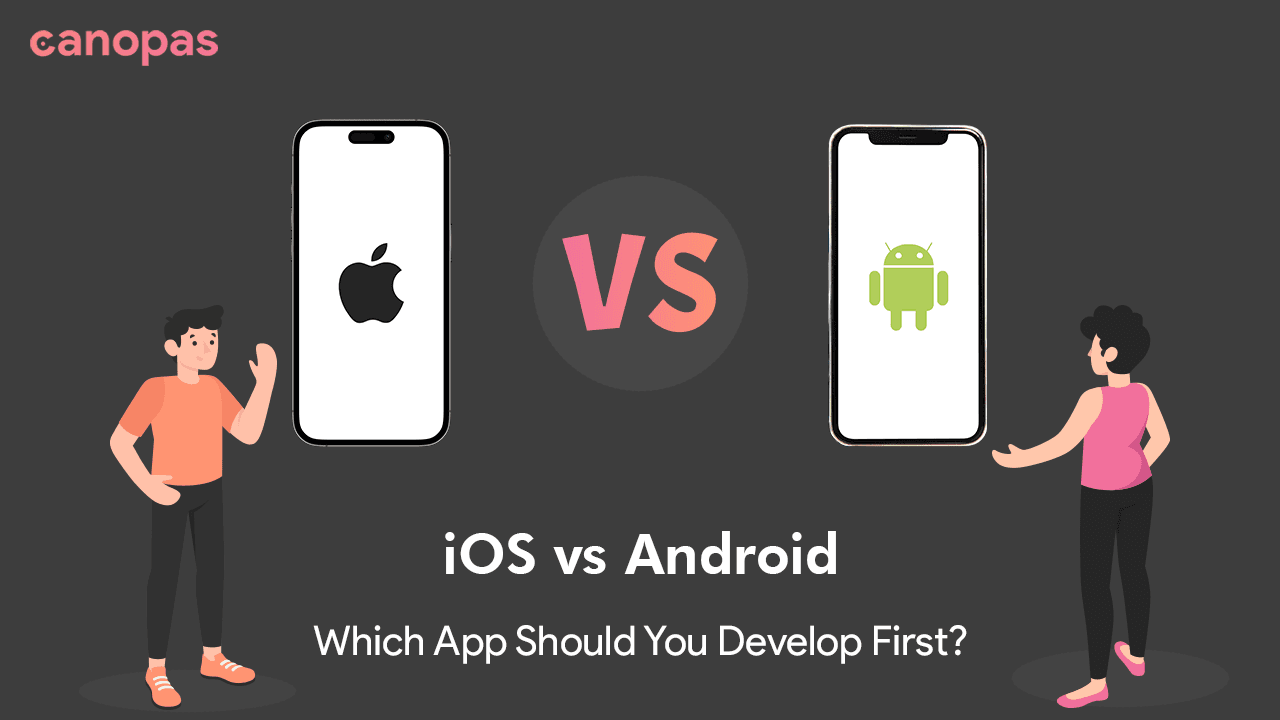
Android vs iOS app development: Which App Should You Develop First?
Mobile App Development — Introduction
In the dynamic world of mobile app development, every entrepreneur is faced with a crucial question, a question akin to the ‘chicken or the egg’ conundrum. It’s the Android vs. iOS debate: Which app should you develop first?
Before we move forward, I want to inform you that there’s no perfect recipe or 100% correct answer to this question. It depends on many factors like your target audience, your target location, use cases of your product, etc.
Understanding this dilemma, we have ventured into the depths of this crucial decision, examining it through the lens of market trends, user behavior, development costs, monetization strategies, and much more.
Whether you’re a start-up looking to make a grand entry or a seasoned business aiming to expand into the mobile realm, this guide will help you navigate the intricate maze of app development choices.
So, ready to embark on this enlightening journey?
Remember, it’s not just about picking a platform; it’s about paving the way for your app’s success.
Stay tuned, and let’s unfold this digital tale together!
Overview of iOS and Android Platforms
Before we dive into the heart of our debate, let’s take a moment to familiarize ourselves with the two titans of the mobile operating system world: iOS and Android.
Each has its unique strengths and weaknesses, and understanding these is the first step toward making an informed decision.
iOS: The Elegance of Exclusivity Developed by Apple, iOS is renowned for its sleek design, seamless user experience, and tight security.
Its user base, while smaller than Android, typically consists of an affluent demographic that’s willing to spend more on app purchases.
However, the walled garden of the Apple ecosystem comes with strict app approval guidelines, which can be a hurdle for app developers.
Android: The Power of Diversity Android, the brainchild of Google, is celebrated for its versatility and broad user base.
With a variety of devices across different price ranges running on Android, it holds a significant chunk of the global market share.
Android offers more flexibility in app development and submission guidelines, but fragmentation issues (different devices, screen sizes, and OS versions) can pose unique challenges.
Market Analysis For Android and iOS App Development
As an entrepreneur looking to launch an app, understanding the underlying currents of this market can be instrumental in steering your strategy.
Android’s Global Dominance
As of our latest data, Android holds a significant majority of the global market share. This wide reach offers you a diverse and expansive user base spanning different regions, languages, and demographics. However, the numbers alone don’t tell the whole story.
iOS’s Lucrative Market
iOS, while not as widely spread as Android, has a stronghold in affluent markets like North America, Western Europe, and Australia. Here lies its strength: iOS users, on average, are known to have higher engagement rates and tend to spend more on apps.
So, while the volume might be lower than on Android, the profitability per user could be higher on iOS, especially for apps with in-app purchases or subscription models.
Geographic and Demographic Considerations
Geographic and demographic segmentation can add a layer of complexity to the market analysis.
Android leads in developing regions where cost-effective devices are more prevalent. On the other hand, iOS tends to be more popular in urban settings and among younger, tech-savvy audiences.
Moreover, certain app categories perform better on one platform than on the other. For instance, gaming apps might see more downloads on Android, while productivity apps might have higher traction among iOS users.
Understanding User Behavior
While the sheer volume of Android users is tempting, it’s crucial to delve deeper and understand who these users are, how they behave, and whether they align with your target audience.
At the same time, the potentially higher profitability and engagement rates on iOS cannot be ignored.
Market analysis, therefore, becomes a balancing act, a careful evaluation of your business goals against the backdrop of the complex and ever-evolving mobile OS market landscape.
Cost and Time for App Development
The choice between Android and iOS isn’t solely a question of audience and reach. Equally important are the development time and cost, aspects that can significantly impact your budget and launch timeline.
Android — A Fragmented Challenge
Android’s strength, its diverse ecosystem, also poses a unique challenge when it comes to app development.
With a wide array of devices, screen sizes, and OS versions, ensuring your Android app works seamlessly across all scenarios can be a time-consuming task.
This diversity, known as device fragmentation, often leads to a longer development and testing phase, which in turn means higher costs.
iOS — The Homogeneity Advantage
Conversely, iOS, with its relatively homogeneous device ecosystem, offers a more straightforward development process.
Since iOS apps only need to function on a handful of devices — iPhones, iPads, and iPod Touches — the development and testing stages are often quicker and less complicated.
As a result, you might find that developing your app for iOS first is faster and less expensive.
Navigating App Store Guidelines
However, it’s not all smooth sailing with iOS. Apple’s stringent App Store review guidelines can introduce additional time to your launch plan.
Your app needs to meet all of Apple’s quality and user experience guidelines, and if it doesn’t pass the review process the first time, you’ll need to make the necessary changes and resubmit, which can delay your app’s time to market.
Monetization Strategies
While creating an app is primarily about serving your users and adding value, let’s not forget an essential factor: monetization. After all, a key part of sustaining and growing your app is generating revenue. Depending on whether you choose iOS or Android, your monetization strategy might look different.
iOS — The Premium Route
Statistically, iOS users are more inclined to make in-app purchases and pay for premium apps. Therefore, if your app’s monetization strategy leans towards in-app purchases, subscriptions, or a paid app model, launching on iOS might be advantageous.
This trend is likely linked to the generally higher income bracket of iOS users, who tend to spend more within apps.
Android — A Volume Game
On the other hand, the vast user base of Android provides a fertile ground for ad-based revenue models.
With a larger number of users, you can generate significant income from in-app advertisements. Additionally, given the global presence of Android, a freemium model (where the app is free, but users can pay for additional features or content) can also work well, especially if your target audience is spread across varying income levels.
Picking the Right Strategy for Your App
In the end, your app’s monetization strategy should not only align with the platform but also with your target audience’s preferences and behavior.
Review and App Store Considerations
Launching an app is not just about developing and testing; it also involves publishing your app on the respective platforms’ app stores.
Apple’s App Store — Quality Over Speed
Apple is known for its rigorous app review process. While this strict scrutiny ensures that the apps available on the App Store are of high quality, it also means you might need to allot additional time for the review process.
Be prepared for the possibility of having to make changes based on feedback from Apple’s review team.
However, this rigorous review process also carries an advantage — it fosters user trust, as they can be assured that downloaded apps have met Apple’s high-quality standards.
Google Play Store — Speed and Flexibility
Contrarily, Google Play Store is noted for its quicker and more lenient app approval process. It’s possible to have your app published and ready for download within hours of submission.
However, this can sometimes lead to a higher number of low-quality apps, affecting the overall perception of apps on the platform.
Updates and Maintenance
Ongoing app maintenance is also a crucial factor to consider. iOS apps usually require less frequent updates, partly due to the less fragmented nature of the iOS ecosystem.
Android apps, due to the sheer diversity of devices and OS versions, might require more frequent updates to address compatibility issues.
Making an Informed Choice
Choosing a platform that aligns with your timeline, resource availability, and quality standards can influence the overall success of your app.
Android and iOS App Development Case Studies
Observing successful apps and their strategies can provide a wealth of insights for your own app journey.
Here, we’ll explore a few notable apps that launched on one platform before the other and analyze their reasons.
Instagram: A Hit on iOS First
Instagram, the wildly popular photo-sharing app, initially launched exclusively on iOS in 2010.
The rationale behind this decision was two-fold: the team wanted to focus on providing an excellent user experience for a narrow audience before expanding, and they leveraged the fact that iPhone users at the time were more engaged with photography apps.
It was only after Instagram’s immense success on iOS that they expanded to Android in 2012.
Clubhouse: iOS’s Exclusive Appeal
More recently, Clubhouse, an audio-based social media app, chose to debut on iOS in 2020. The app was invite-only, creating an exclusive, buzz-worthy appeal.
As Clubhouse grew in popularity, the team gradually rolled out to Android users in 2021. This case suggests a strategic use of iOS’s perceived premium positioning to enhance an app’s market appeal.
Prisma: Timing the Market Right
Prisma, a photo-editing app, also launched on iOS first in 2016. The app’s unique selling proposition — transforming photos into artistic renderings — quickly caught on, and within weeks it was expanded to Android to capture a larger market.
These cases highlight how market conditions, user demographics, unique selling propositions, and strategic considerations can influence the decision of which platform to launch on first.
By understanding these stories, you can glean insights that inform your platform choice, aligning them with your specific business situation and goals.
The Cross-Platform Consideration
Given the cost and time implications, some businesses opt for a cross-platform development approach, leveraging tools like React Native or Flutter.
While this allows simultaneous development for both Android and iOS, it might involve compromises in terms of performance and user experience.
In conclusion, deciding between Android and iOS from a development standpoint involves carefully considering your budget, timeline, and desired user experience.
It’s about understanding the unique challenges each platform presents and aligning these with your resources and goals.
Reach out to Canopas Team for Free Consultation and Expert Advice for your project.
Conclusion — Android vs iOS — Which Should You Develop First?
Choosing whether to launch your business app on iOS or Android first is a critical decision that requires a thoughtful analysis of several factors.
From understanding your target audience and analyzing the market landscape to considering development costs and timeframes, every element plays a pivotal role in shaping your mobile app strategy.
Moreover, your monetization approach and the peculiarities of each platform’s app store can further impact your decision. Observing successful case studies can provide insights into how to align your platform choice with your unique business situation and goals.
In the end, there’s no one-size-fits-all answer. Your decision should stem from a deep understanding of your business, your users, and the specific dynamics of the iOS and Android ecosystems.
Remember, the choice of platform for your initial launch doesn’t limit your future prospects. Many businesses start with one platform, learn from their experiences, and then expand to the other, continually refining their approach in this ever-evolving mobile app landscape.
We hope this guide has equipped you with valuable insights to make an informed decision. For more detailed information, discussions, and expert guidance on mobile app development, please visit our website and blog at canopas.com.
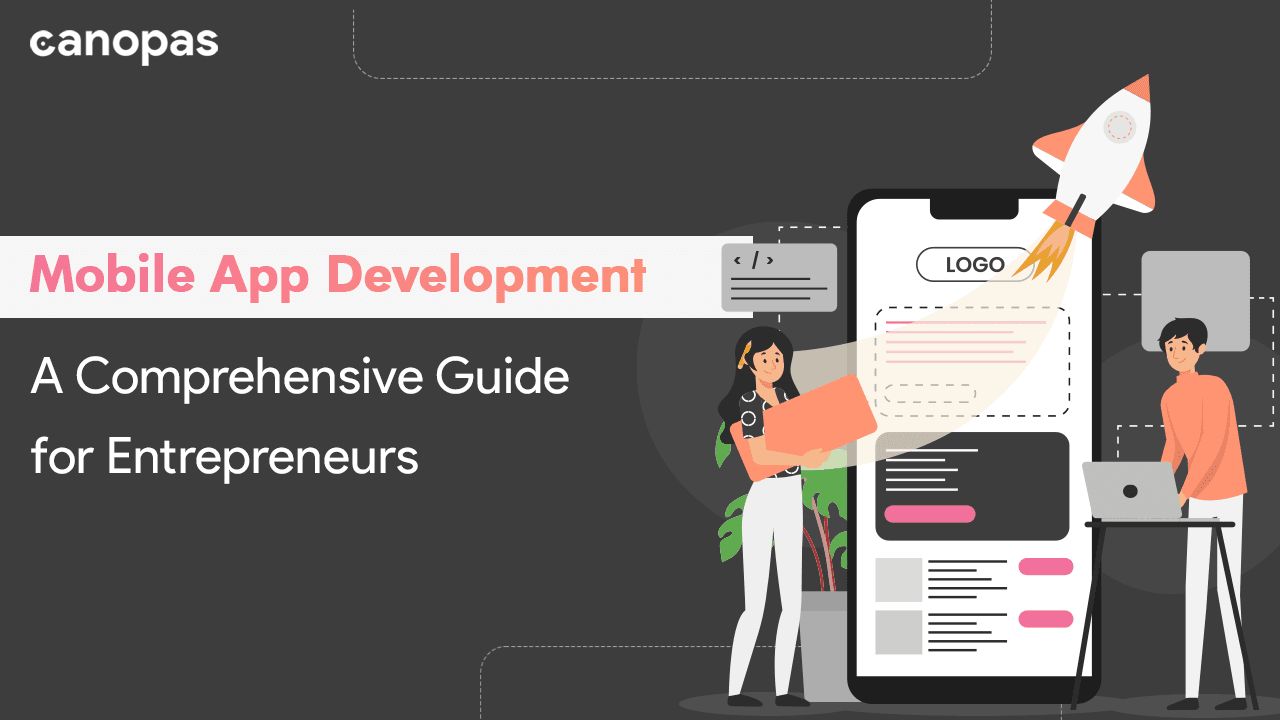
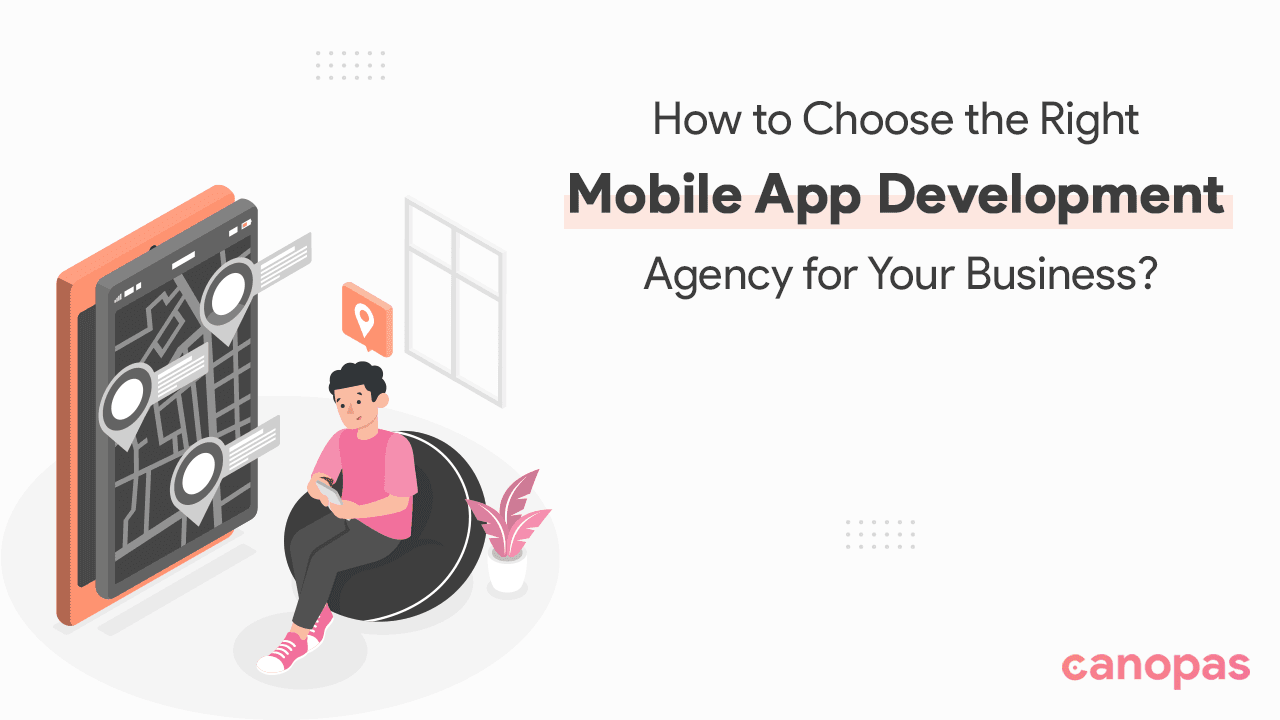
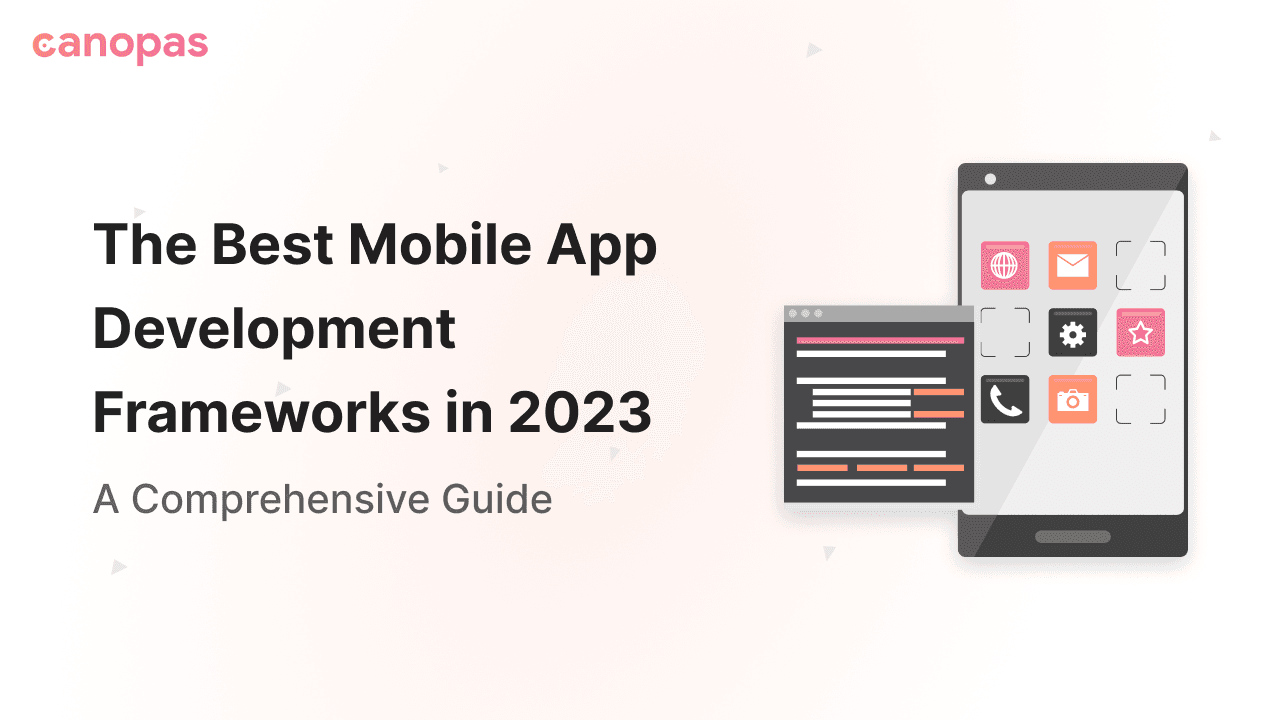



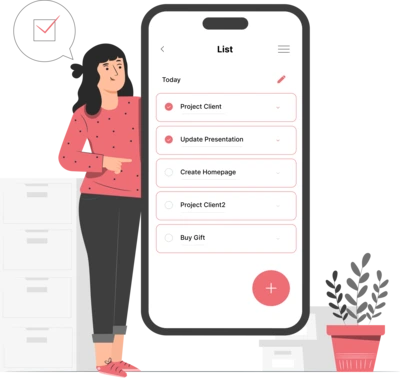
Whether you need...
- *High-performing mobile apps
- *Bulletproof cloud solutions
- *Custom solutions for your business.

